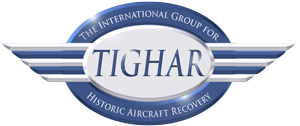 |
Building upon the experience gained from the first treatment conducted in Australia, further refinement of the electrolytic stabilization process has been achieved. Further, as a practical conservation exercise, the object is now considered stable and appropriately presented.
The treatment process can be considered effective and efficient. Notwithstanding, development and refinement should continue. Future work should address the following:
- Comprehensive analysis of all metal components should precede treatment.
- Significant time delays for chloride analyses should be avoided.
- The effect of treatment solutions on organic components (rubbers, plastics etc.) should be studied.
- The effect of treatment procedures and solutions on surface treatments (such as anodizing) should be studied.
- Further trials should be conducted to ascertain the most appropriate finishing surface coatings.
- Metasilicate solution, although an affective inhibitor for aluminium, may attack deteriorated surfaces if potential is not strictly controlled. Investigations into other appropriate systems should be undertaken.
- The use of inhibitors during the tap water polarization to reduce the formation of flash rusting may be appropriate.
 |
Copyright 2021 by TIGHAR, a non-profit foundation. No portion of the TIGHAR Website may be reproduced by xerographic, photographic, digital or any other means for any purpose. No portion of the TIGHAR Website may be stored in a retrieval system, copied, transmitted or transferred in any form or by any means, whether electronic, mechanical, digital, photographic, magnetic or otherwise, for any purpose without the express, written permission of TIGHAR. All rights reserved. Contact us at: info@tighar.org • Phone: 610.467.1937 • JOIN NOW |